Event organizers often rely on budgets to ensure that all the expenses of an event are well anticipated and covered by the end of the event. Regardless of whether the event is a birthday party, cooperate event, conference, graduation party, festival, music concert, etc. Other parties known for creating budgets for events are event sponsors and donors. Each party provides what they can give as a percentage of their total costs (typically referred to as contributions). All parties have to be aware of their financial obligations. The more precise the estimates are, the more efficient the budget is.
While budgeting can be tricky and exhausting, event budgets can be created using pre-designed event budget templates to cover the essential aspects of different events, thus reducing the workload for budget planners. This article educates the reader about event budget templates and how to budget for any event.
Pre-budgeting Considerations
Before you start creating a budget for an event, there are several key factors that you need to consider that would determine the success of your budget.
They include:
Know your event and its goals
Firstly, you should know what your event is all about and understand its goal and overall budget as they would help determine the budget’s scope. Next, visualize everything from the venue, food, decor, security, equipment, talent, etc. Also, understand the target audience to ensure the event meets everyone’s expectations. Finally, always begin with a budget and modify the event’s requirements to fit within the budget.
Look into past events
Past similar events can be a great source of information regarding event budgeting. First, look at previous budgets and determine the scope, estimated costs, and other relevant information. Then, consider adopting the positives and re-evaluating the negatives of previous budgets. However, you ought to pay close attention to changes in trends and costs.
Previous event budgets do not indicate the exact figures to input into your current budget. Instead, they act as guides that provide you a starting point in determining the line items to include in your event budget.
Reach out to vendors
Budgeting for events will often involve estimating figures that require consultation and obtaining quotations from different vendors of event budget template items. You can reach out to vendors through calls and emails and get the prices of different items on your budget. Ask for as many details as possible from specification, quantity, offers, prices, etc.
Research line items
Developing a solid event budget requires extensive research to obtain information. Research the items on the budget and determine the most suitable items available for use. You can research the best venue, cost of staff, booking sites, marketing, security, etc.
Must-haves of the Event Budget Template
The specifics of an event budget will differ from one event to another. However, most templates will have consistent categories of costs. Therefore, certain elements should be presented in the document when selecting an event budget template.
They include but are not limited to:
Items and their description
The event budget template should provide all the divisions and categories of expenses associated with the event. The categories are usually determined by budget needs such as food, venue, decoration, insurance, accommodation, talent, and other relevant items. In addition, a description of each budget item should be provided. The description of each item must indicate its specific use. This section can be presented in two columns (items and description).
Site rental costs
An event budget will typically start with venue costs as the first item. This section is meant to outline all the costs of renting the venue. This can include venue-specific staff, security, sanitation, housekeeping, etc.
Catering and transportation costs
Catering and transportation costs are also essential expenses experienced with events. They should be covered in the event budget template. Catering costs will vary depending on the attendance, type of service style, city, cuisine, and other factors. Catering covers food, beverage, drinks, table settings, and bar setup.
Transportation will often be used in transporting guests, staff, equipment, etc. Transport costs can cover limo service, delivery, parking fees, fuel expenses, etc. Again, these costs will often differ depending on the type of event.
Decor, entertainment, and equipment expenses
Other aspects of an event that should be accounted for in the event budget are décor, entertainment, and equipment. Depending on the event theme, decor can take many forms – for example, a wedding will require flowers, ribbons, balloons, etc. Equipment expenses include microphones, speakers, cables, lighting, other sound equipment, podiums, and unique event furniture.
Entertainment can sometimes include other items required, such as children’s games, bubble machines, etc. Keynote speakers and entertainers fees can also be included in this section.
Printing and activities charges
Certain aspects of an event require printing and other activities. For example, a school dance will require invitations, posters, buttons, etc. So the expenses of these items should be considered during the budget process. This can include tickets, pin badges, etc. In addition, if there will be activities being performed during the event, any associated fees should be included in the event budget template. This includes costs of consumables and fees incurred to acquire permits for activities such as rafting, golfing, or any other.
Other expenses
Categories for any other projected costs should be provided in the template. These costs do not fall under each of the previously mentioned categories. Examples of additional costs include gifts for guests, branding of items, marketing costs, legal fees, or any other fees for specific items.
Summarization of projected costs
Once all the event’s requirements have been recorded in the template for the event budget, the costs of these items can be estimated. Use data obtained from research and information obtained from vendors to estimate the costs. Therefore, the projected costs should reflect the vendors’ proposals and quotes.
Summarization of actual expenses
Lastly, a column of actual costs should appear in the event budget template. This is where you record the actual costs of each item outlined in the budget. Therefore, this section will typically be filled out after purchase, receiving invoices, signing contracts, or after the event. However, the projected costs should not be far apart to remain within budget.
Tip: Remember, events are unpredictable
While budgeting for an event, always set aside a contingency fund to cushion against unpredictable circumstances. Events are often prone to changes, accidents, or additional requirements that cost money and thus have to be budgeted. Typically, 20% of the actual budget is deemed sufficient. If a contingency fund is to be added, it is advisable to have the financiers sign off.
Event Budget Templates
Many event budget templates are available online. To select the best one, you may want to consider prerequisites, required information, and details that should be included in your budget. In addition, readers can obtain professional event budget templates from this website for free. These templates offer a quick way to prepare an efficient event budget for different events. In addition, they are readily available and easily customizable to satisfy different event requirements.
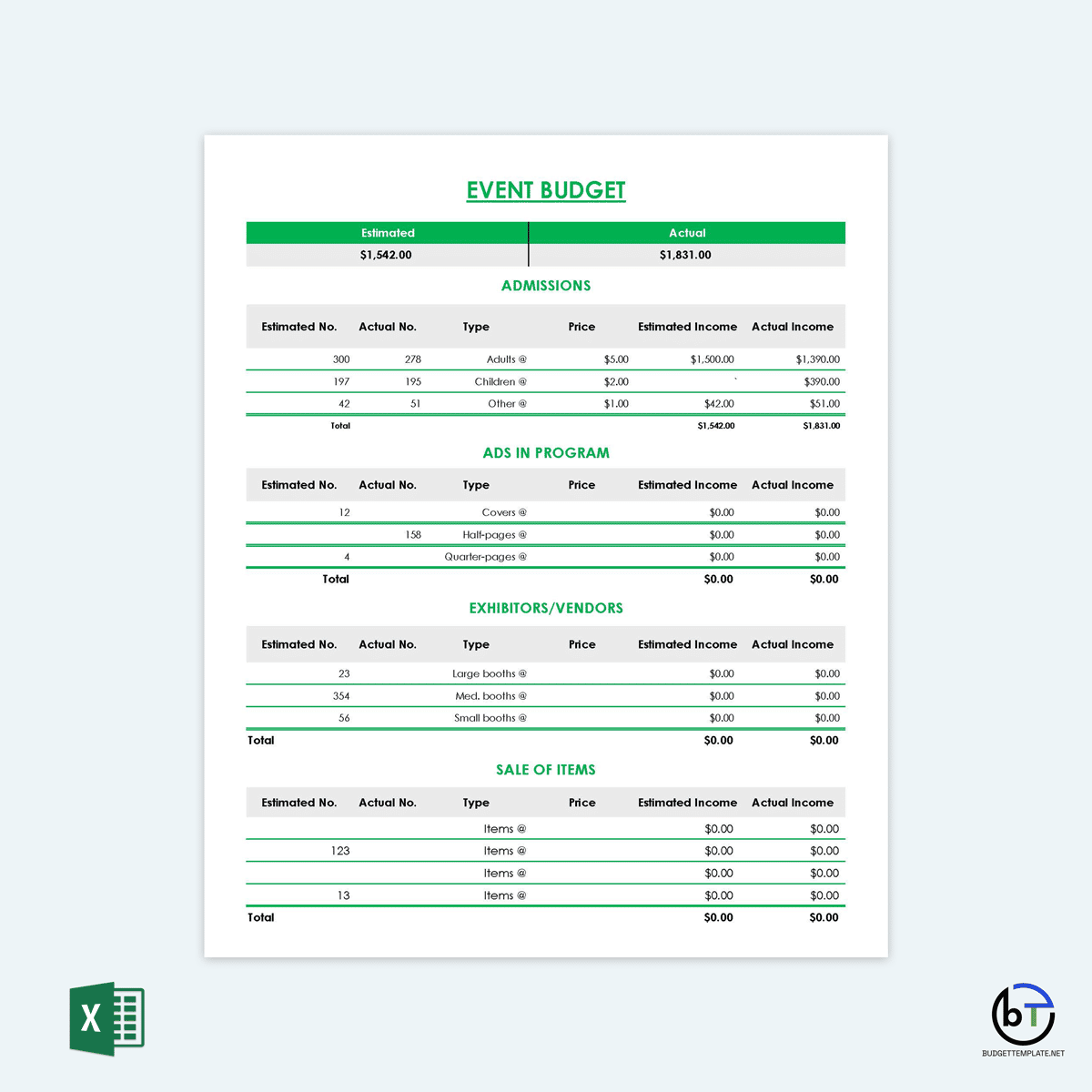
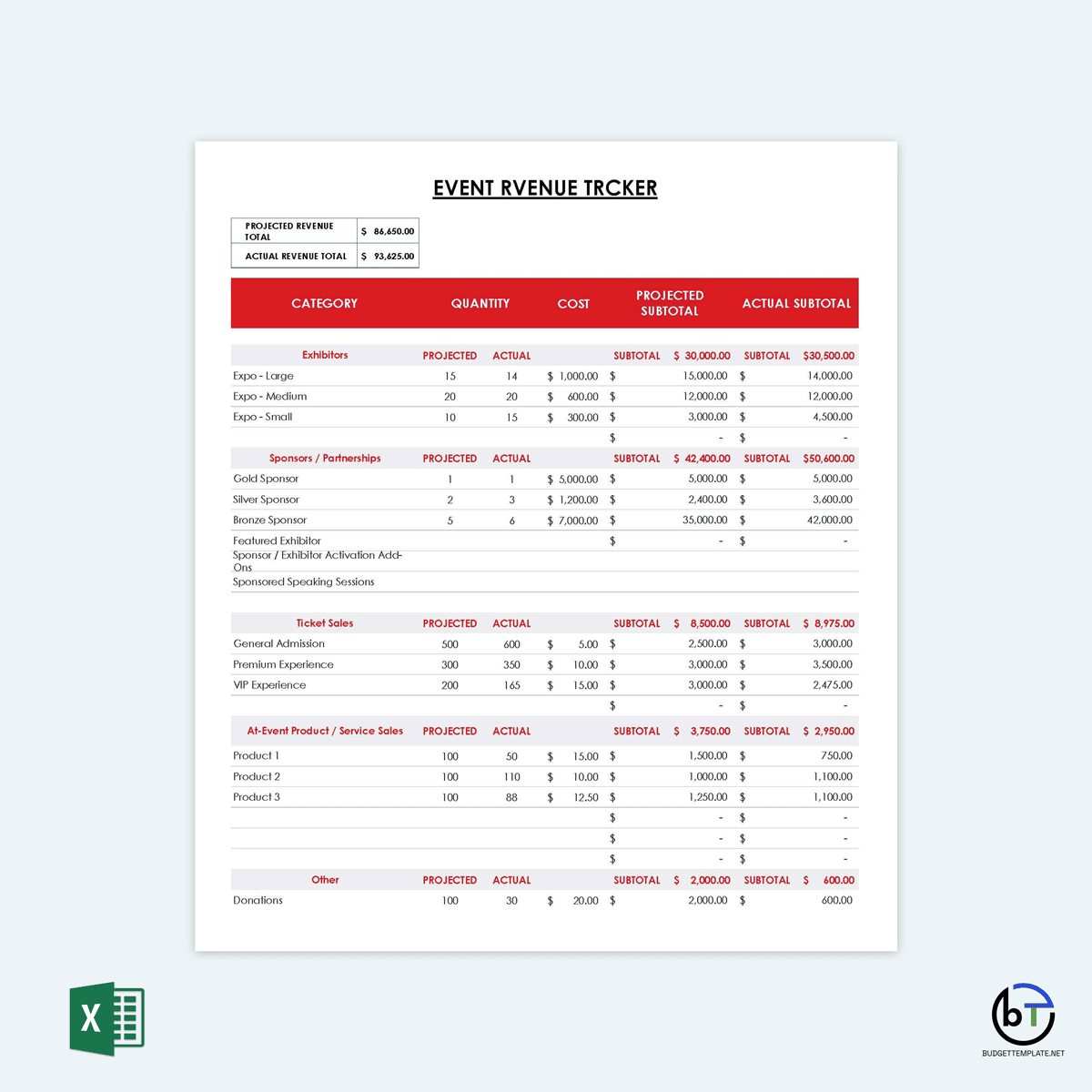
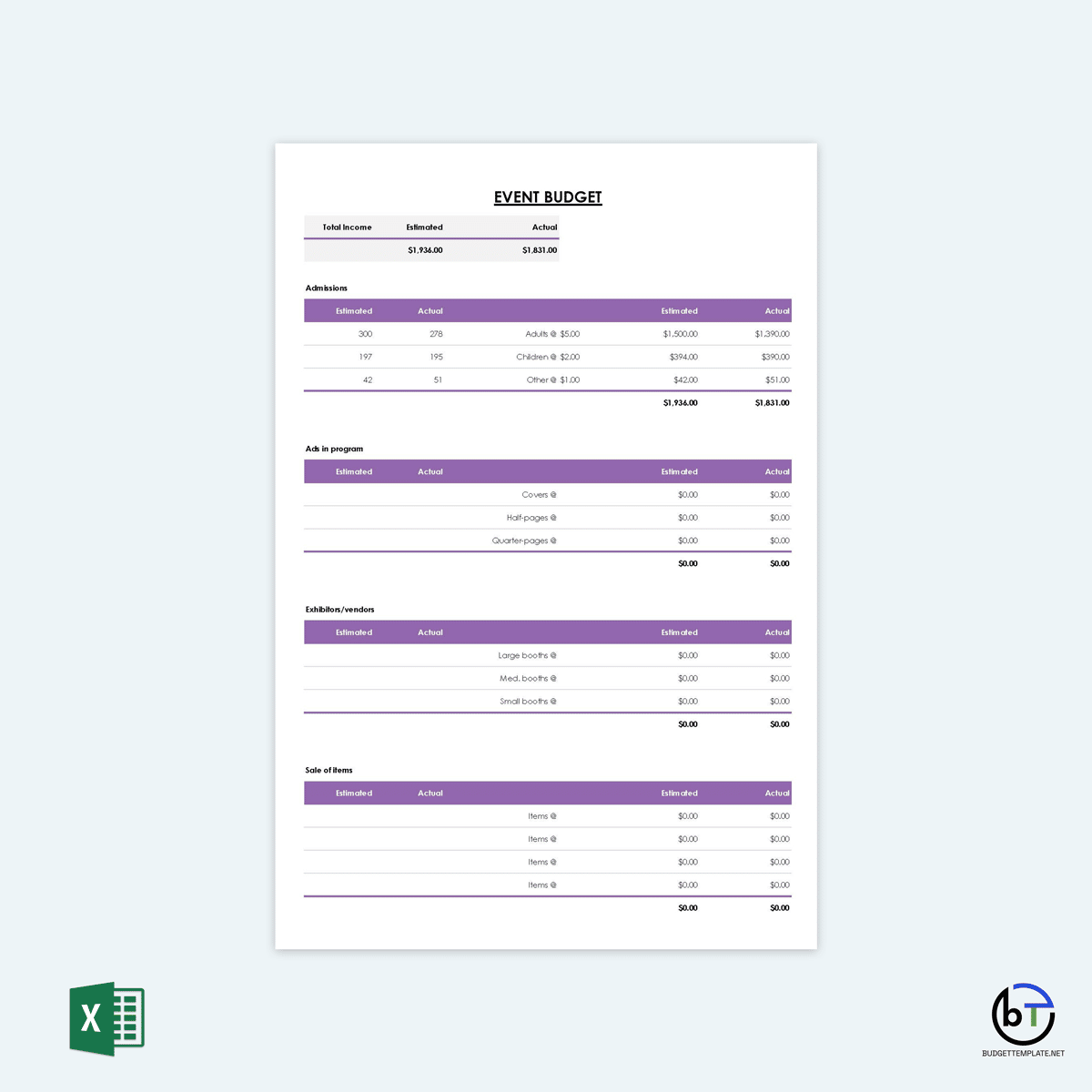
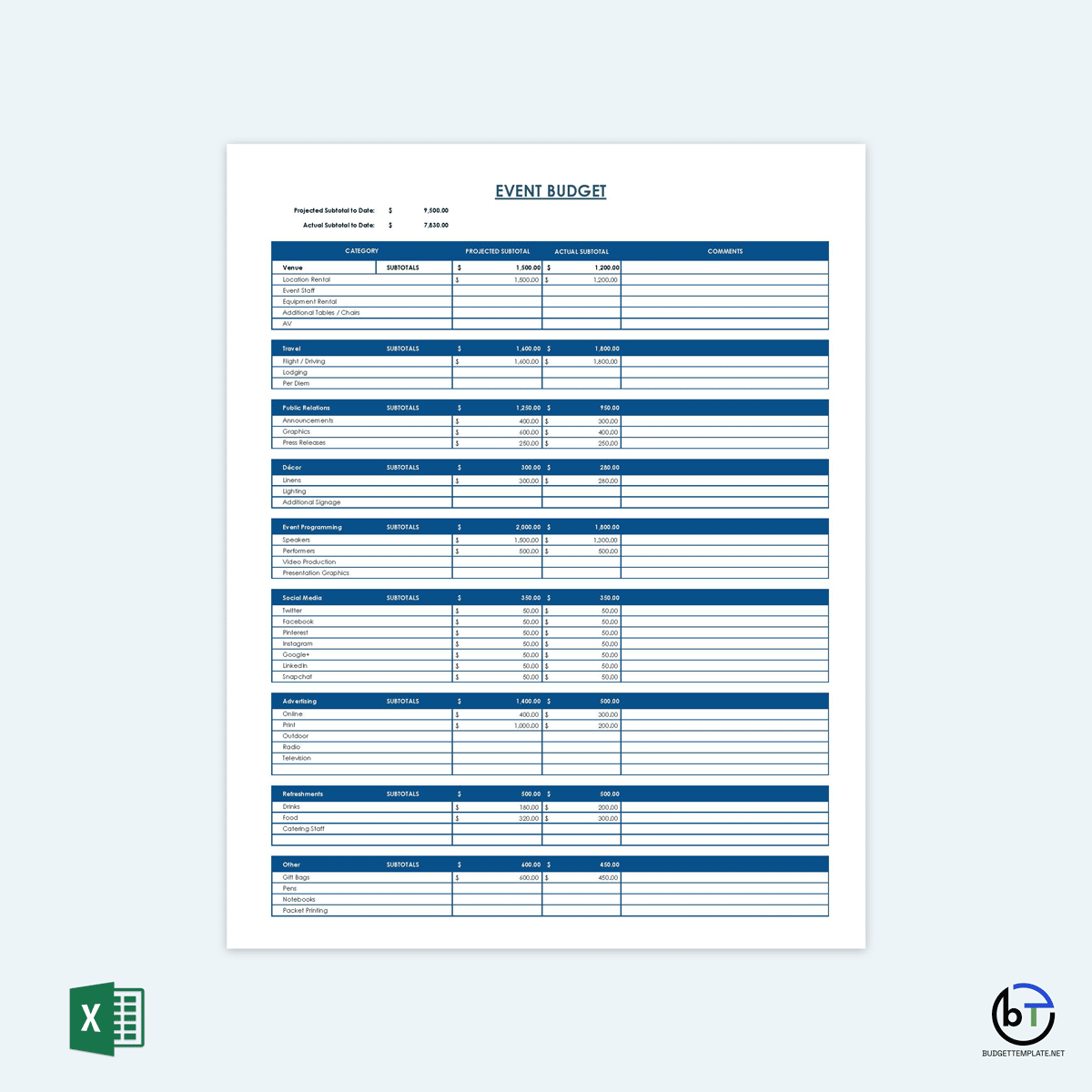
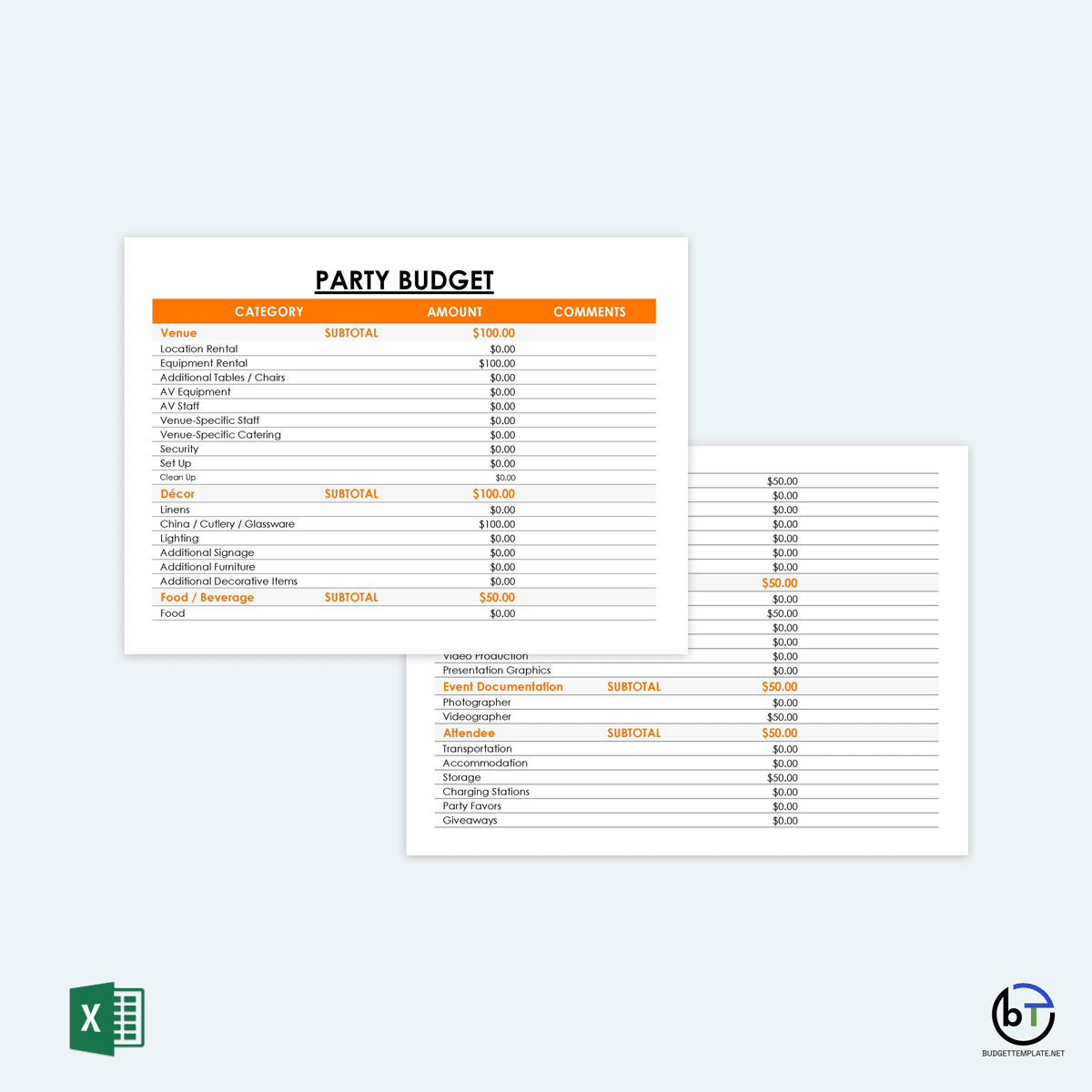
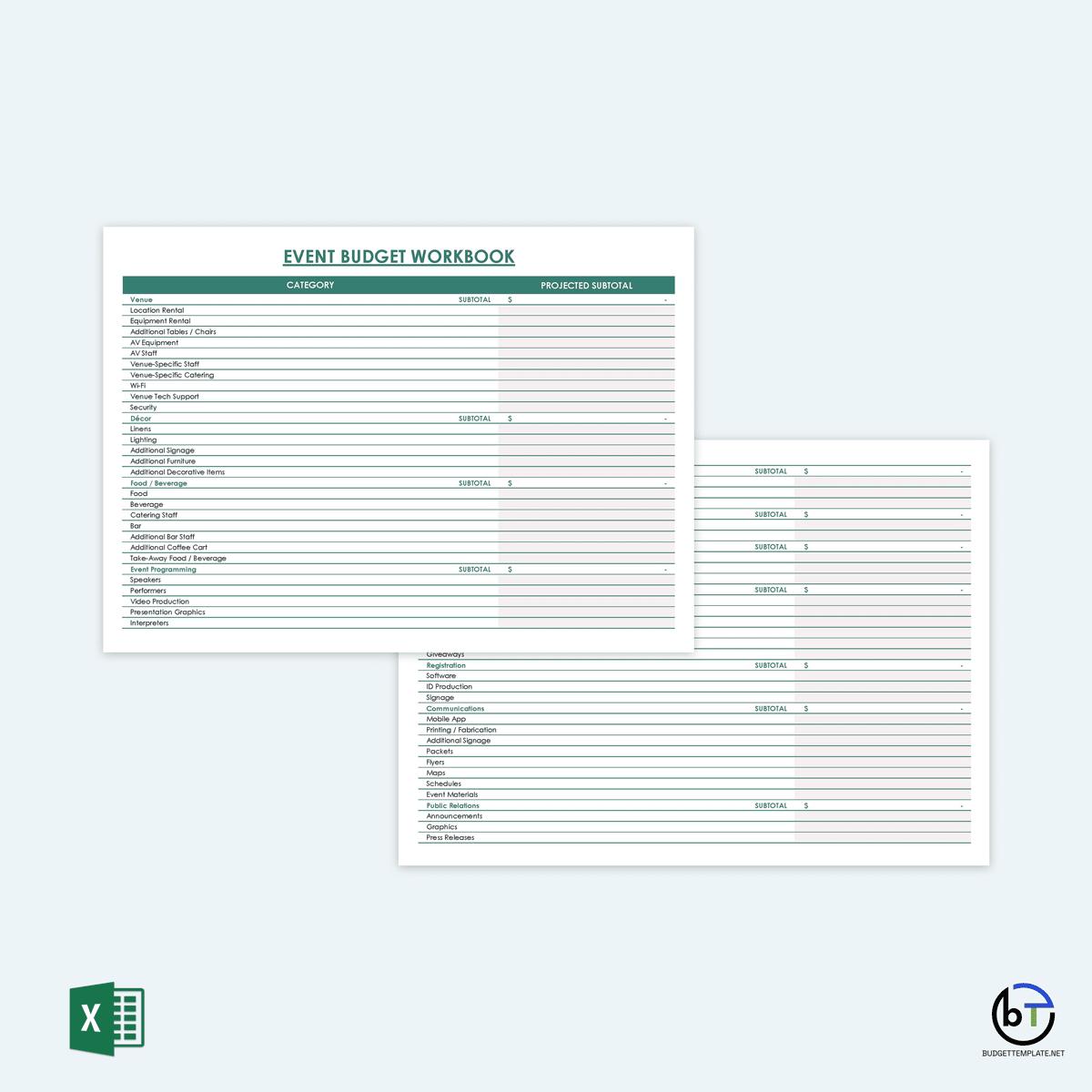
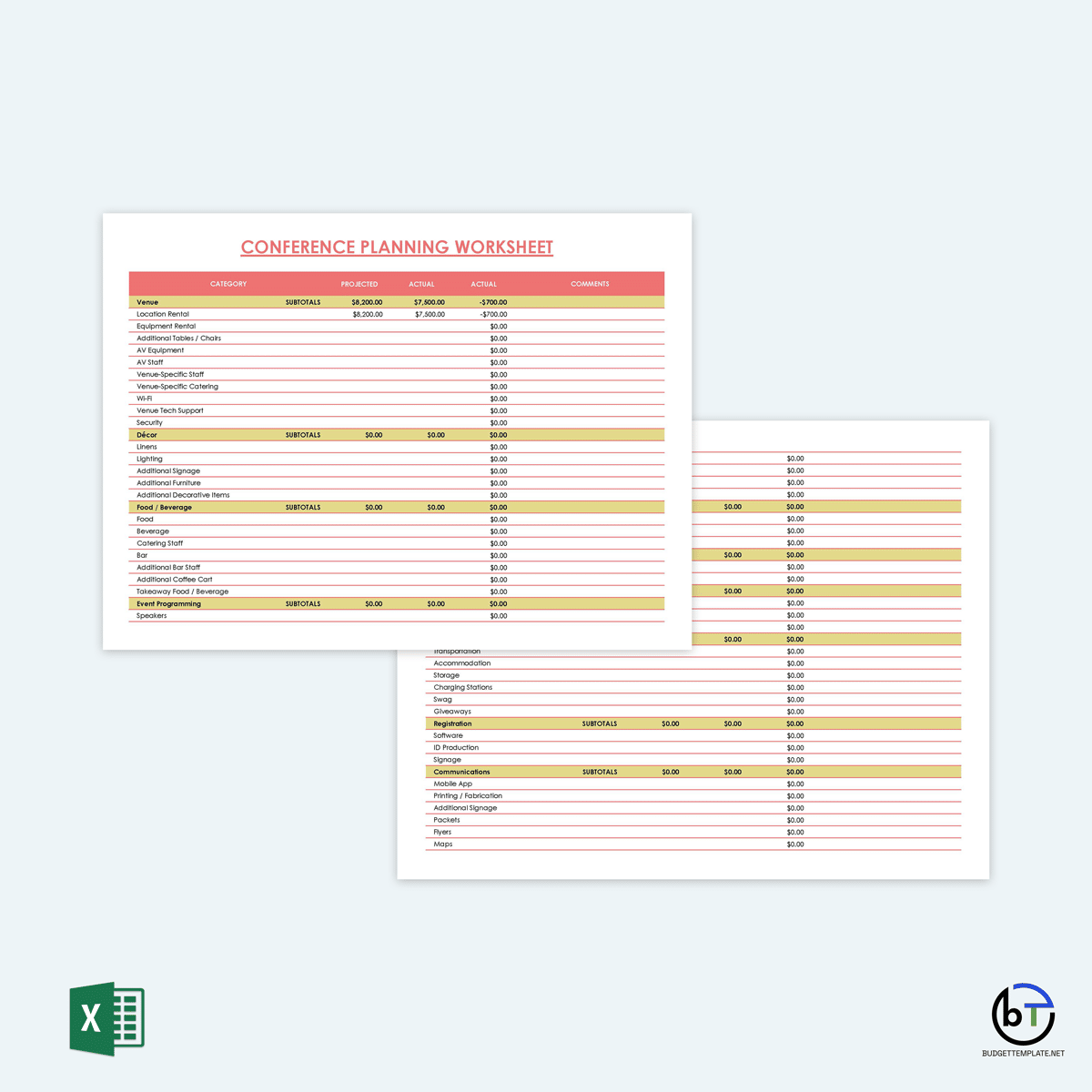
Some Must-to-follow Tips
A reasonable event budget can save you a lot of frustration and help you remain in control of finances allocated to different items. Below are several fundamental tips to help you develop a budget for an event:
- Don’t delay in making the budget: The sooner you prepare the budget, the better. A budget is at the core of preparation for an event. Therefore, if it is created as soon as possible, plans can be made to ensure everything is available precisely when needed to make the event a success.
- Start will ballpark: You do not have to get the budget correct the first time. Event budget templates can be revised and updated as planning continues. Therefore, you can start with a subjective figure of how much the event will cost. This figure can be refined as time goes by and consultations with stakeholders are made.
- Define the focus of your event: Always define the objectives for the event. You can choose to focus on one or two or create a priority list. The event budget should reflect the priorities of the event – for example, if the focus is on good food, more money can be allocated to ensure the best catering services are obtained.
- Make detailed budget: Include as many particulars as possible in the event budget. You can even include notes in the template. The budget should be as informative as possible such that it can provide clarity to anyone using it for planning or accounting purposes.
- Explore all the venue options: Try to explore as many venues as possible. Each venue will be offering something unique from the other. Venues that offer multiple services such as catering services, entertainment equipment, security, and parking space are more desirable and can be cost-saving.
- Avoid under-pricing the items: Avoid under-pricing items to get the budget approved or appeal to stakeholders. Under-pricing is a dangerous move that can be costly and compromise the attendees’ experience due to lack or insufficient quantity and quality of services.
- Make sure everyone is on the same page: Everyone involved in planning the event should be notified of the budget’s existence. This can be done by sharing the budget with the rest of the team. Getting everyone involved in planning and executing the budget on the same page effectively ensures its benefits are gained. This is because your team is equally responsible for spending the budgeted money.
- Don’t compromise on quality: It is not advisable to favor affordability over quality. Quality products and services will always make an event worthwhile. You can always try to strike a balance between quality and affordability.
- Consider balancing between event income and expenses: If there will be income generated from the event, such as ticket sales, donations, merchandise sales, sponsorships, etc., it should be factored in when creating the budget. Try to create a balance between the income and expenses incurred. Establishing a balance ensures the event is profitable.
- Determine where to save and where to spend: Always establish areas where you can save or spend extra money. Ideally, there will always be areas where spending too much money doesn’t make sense while others require significant allocations. This practice can help you focus on the main aspects of the event without straining the available resources.
- Keep margin for emergencies: As the event planner, anticipate emergencies – maybe something gets broken, an accident happens, or something is missing and has to be replaced. While most emergencies will come at a cost, anticipating and being prepared will protect you from the stress that comes with such emergencies and reach from your pocket to cover additional expenses.
- Make it work for you and others: Customize the budget to be helpful to you and other users. Record important information such as vendors’ contacts, alternative venues, notes on observations, etc. This information can help implement the budget and create future event budget templates.
Wrapping Up
A well-organized budget template is necessary to keep track of every expense involved in an event. An event budget template is a handy tool for organizing and managing the finances for any event and communicating the projected expenses to the stakeholders. The budget you prepare should reflect what the event will be like and how much work it will entail. Additionally, an event budget should be factual so that any future financial manager can accurately assess its success or failure.
Finally, remember that an event is an investment. Therefore, through careful planning and proper budgeting, you will be able to ensure everything on the day of the event goes smoothly, attendees receive a rewarding experience, stakeholders’ objectives are met, and all profits made from it are well spent.









